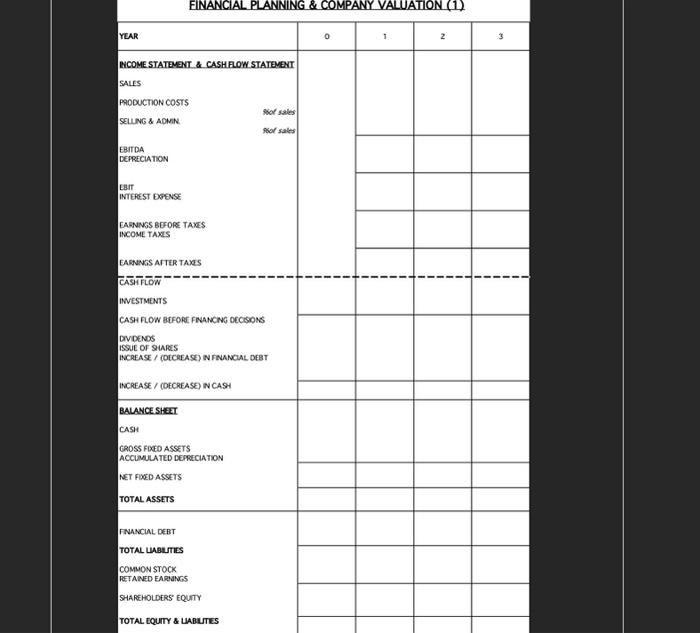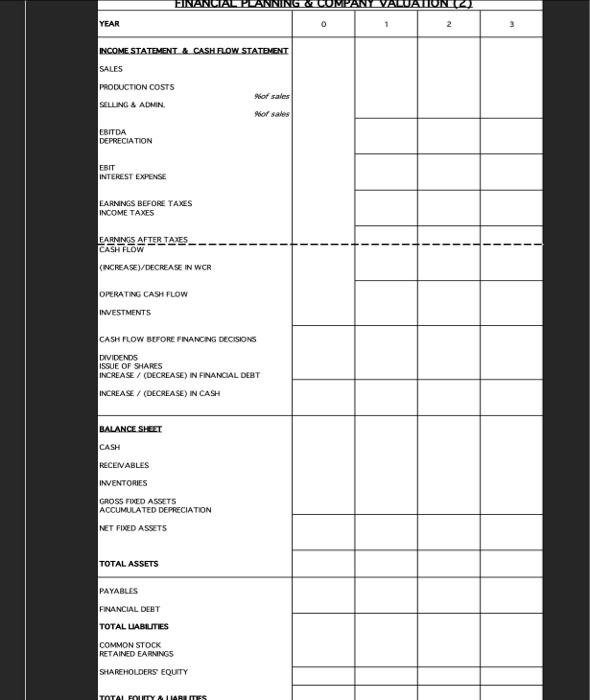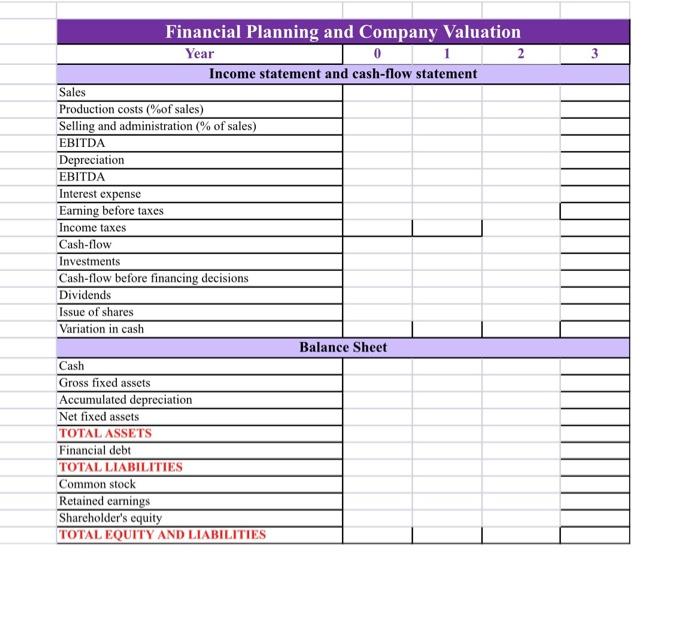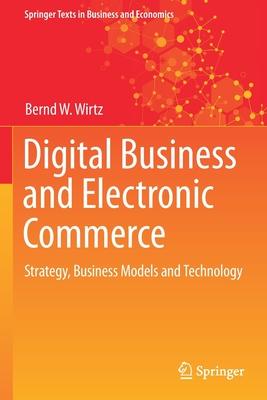posting this again because my first post got absolutely no help. Still don't know where to start how to even do any of this. I would truly appreciate some help
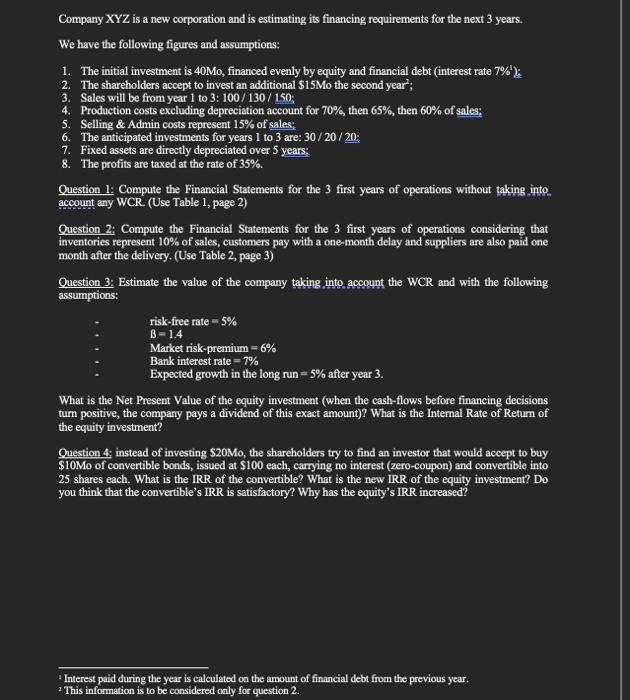
Company XYZ is a new corporation and is estimating its financing requirements for the next 3 years. We have the following figures and assumptions: 1. The initial investment is 40Mo, financed evenly by equity and financial debt (interest rate 7%%1 ) 2. The shareholders accept to invest an additional \$15Mo the second year 2; 3. Sales will be from year 1 to 3:100/130/150; 4. Production costs excluding depreciation account for 70%, then 65%, then 60% of sales: 5. Selling \& Admin costs represent 15% of sales: 6. The anticipated investments for years 1 to 3 are: 30/20/20 : 7. Fixed assets are directly depreciated over 5 years: 8. The profits are taxed at the rate of 35%. Question 1: Compute the Financial Statements for the 3 first years of operations without taking into. account any WCR. (Use Table 1, page 2) Question 2: Compute the Financial Statements for the 3 first years of operations considering that inventories represent 10% of sales, customers pay with a one-month delay and suppliers are also paid one month after the delivery. (Use Table 2, page 3) Question 3; Estimate the value of the company taking into account the WCR and with the following assumptions: What is the Net Present Value of the equity investment (when the cash-flows before financing decisions tum positive, the company pays a dividend of this exact amount)? What is the Internal Rate of Return of the equity investment? Question 4: instead of investing \$20Mo, the shareholders try to find an investor that would accept to buy $10Mo of convertible bonds, issued at $100 each, carrying no interest (zero-coupon) and convertible into 25 shares each. What is the IRR of the convertible? What is the new IRR of the equity investment? Do you think that the convertible's IRR is satisfactory? Why has the equity's IRR increased? Interest paid during the year is calculated oa the amount of financial debt from the previous year. This information is to be considered only for question 2 . EINANCIAL PLANNING \& COMPANY VALUATION (1) VINANCTAL PLANINING \& CUNRANY VALUAIIUNC 21 Company XYZ is a new corporation and is estimating its financing requirements for the next 3 years. We have the following figures and assumptions: 1. The initial investment is 40Mo, financed evenly by equity and financial debt (interest rate 7%%1 ) 2. The shareholders accept to invest an additional \$15Mo the second year 2; 3. Sales will be from year 1 to 3:100/130/150; 4. Production costs excluding depreciation account for 70%, then 65%, then 60% of sales: 5. Selling \& Admin costs represent 15% of sales: 6. The anticipated investments for years 1 to 3 are: 30/20/20 : 7. Fixed assets are directly depreciated over 5 years: 8. The profits are taxed at the rate of 35%. Question 1: Compute the Financial Statements for the 3 first years of operations without taking into. account any WCR. (Use Table 1, page 2) Question 2: Compute the Financial Statements for the 3 first years of operations considering that inventories represent 10% of sales, customers pay with a one-month delay and suppliers are also paid one month after the delivery. (Use Table 2, page 3) Question 3; Estimate the value of the company taking into account the WCR and with the following assumptions: What is the Net Present Value of the equity investment (when the cash-flows before financing decisions tum positive, the company pays a dividend of this exact amount)? What is the Internal Rate of Return of the equity investment? Question 4: instead of investing \$20Mo, the shareholders try to find an investor that would accept to buy $10Mo of convertible bonds, issued at $100 each, carrying no interest (zero-coupon) and convertible into 25 shares each. What is the IRR of the convertible? What is the new IRR of the equity investment? Do you think that the convertible's IRR is satisfactory? Why has the equity's IRR increased? Interest paid during the year is calculated oa the amount of financial debt from the previous year. This information is to be considered only for question 2 . EINANCIAL PLANNING \& COMPANY VALUATION (1) VINANCTAL PLANINING \& CUNRANY VALUAIIUNC 21


